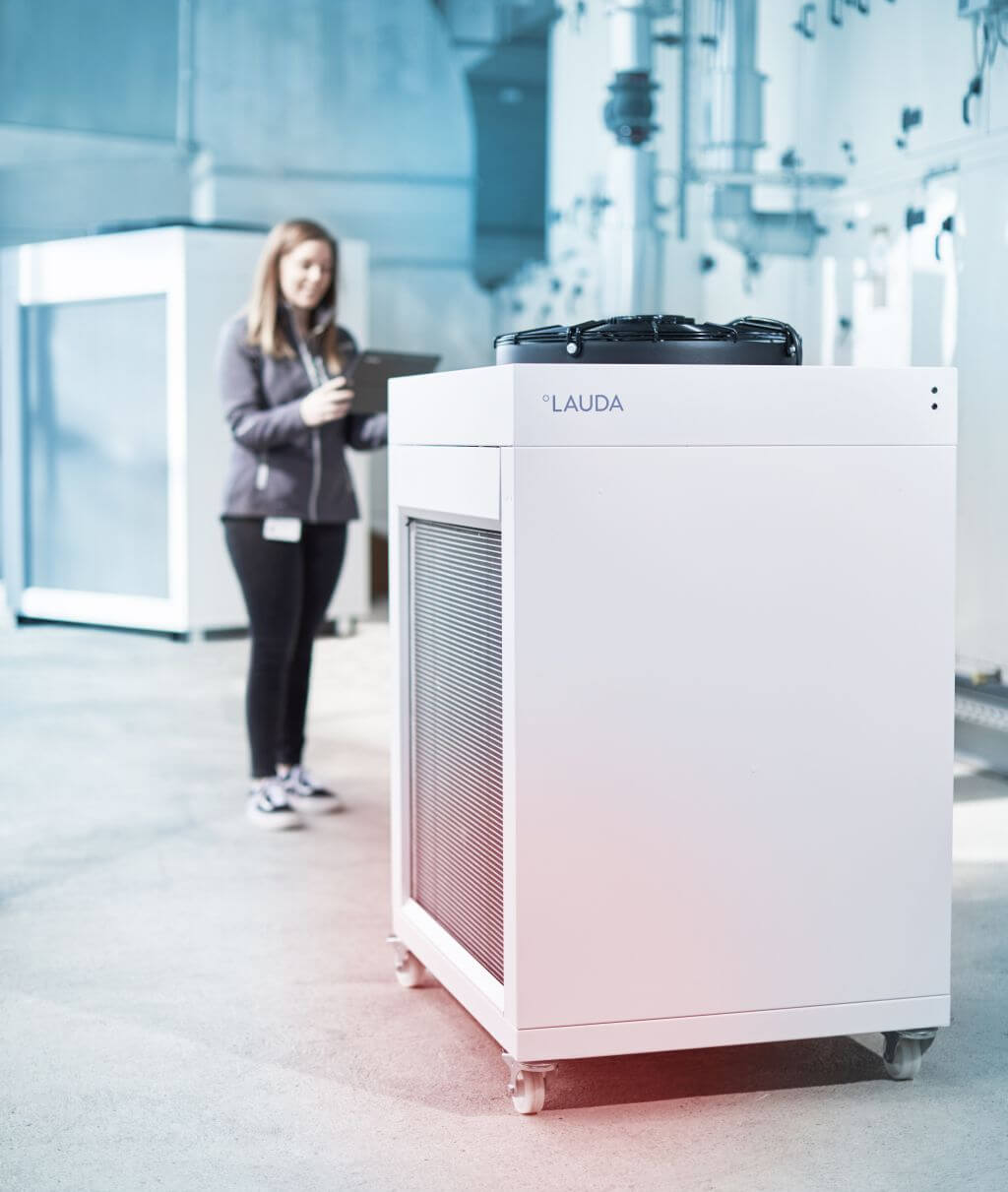
Compressors play a pivotal role in the refrigeration cycle of glycol chillers. These components are responsible for a significant portion of the energy consumption of industrial units, particularly when considering HVAC, fluid cooling, and air compression systems. The primary function of a compressor in a fluid or glycol chiller is to convert refrigerant from a gas state to a liquid state, enabling the continuation of the refrigeration cycle. However, not all compressor systems are created equal.
The latest advancements in compressor technology, exemplified by LAUDA’s Ultracool, integrate variable speed drives (VSD) into their design. This innovation allows the compressor to operate at variable speeds, rather than being restricted to the binary states of fully on or fully off. By incorporating VSD, the Ultracool chiller system can adjust its operation to match the variable loads it encounters, optimizing its compression ratio accordingly. This ensures that the compressor and chiller use only the necessary amount of power, leading to substantial energy savings for the end user. For instance, if the fluid circuit does not require a full load, the system operates at a reduced speed, conserving energy.
Energy efficiency is becoming increasingly crucial in the face of tightening regulations. Many companies are proactively seeking eco-friendly, green, or energy-efficient solutions, regardless of the regulatory environment in their regions. Adopting these advanced technologies early not only aligns with potential future policies but also enhances manufacturing efficiency and cost-effectiveness, directly impacting the cost of goods produced.
When evaluating glycol chiller options, it is essential to consider whether the compressor utilizes a variable speed drive. While cheaper chillers might offer immediate cost savings, they typically incur higher energy costs over their operational lifespan compared to more energy-efficient models like the LAUDA Ultracool. Investing in Ultracool chillers ensures long-term savings and positions your operations ahead of the competition in terms of energy efficiency and environmental responsibility.
In conclusion, as industrial energy regulations evolve, the adoption of variable speed compressor systems like LAUDA’s Ultracool is a strategic move. These systems not only reduce energy consumption but also offer significant cost benefits over time, making them a wise investment for any company looking to enhance its operational efficiency and sustainability.
This post was authored by Christopher Sebastiano, Southeast Sales Manager at LAUDA-Brinkmann.
